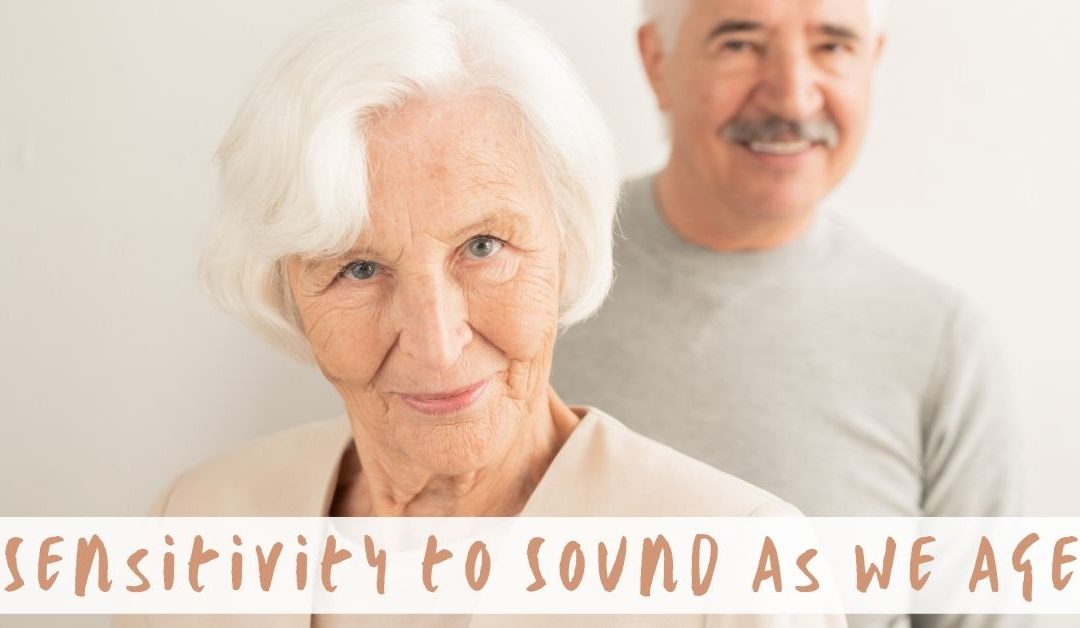Our hearing changes as we age – sometimes in ways we are only just beginning to understand. While it has long been recognized that the risk of hearing loss accelerates the older we become, age also changes the way our mind prioritizes sound. What exactly does this mean? Researchers looked into how the brain organizes sound and what sounds it is most sensitive to in different listening environments. What they found is that older listeners have more difficulty ignoring irrelevant background noises – like popcorn crunching during a movie or a truck driving by during a conversation.
Recent studies have shown that this sort of sound sensitivity increases as we age. While being sensitive to sound may seem like an indicator of good hearing, it actually doesn’t mean better hearing. Instead, it indicates hearing where the learned ability to prioritize different sounds is eroding.
Recent Research
A scientific study coming out of Canada’s Western University compared hearing sensitivity in groups of younger and older adults. Both groups were assessed with normal hearing, so significant hearing loss was not a factor. Still there were noticeable differences in hearing performance between the two groups.
The young adults adapted quickly easily to their sound environments, prioritizing and focusing on relevant sounds quickly and overlooking background noise. In the older participants, the boundary between relevant sounds and background noises broke down. Many people in the older group reported being distracted, interrupted or annoyed by environmental sound that did not phase younger listeners.
This finding made clear that aging initiates some cognitive changes in the way we hear. Older adults may have less control over discerning background and environmental noises and ignoring them. This can lead to behavior and quality of life changes.
Hearing Sensitivity and Behavior
Just as hearing loss can impact behavior and quality of life, so can hearing sensitivity. Being over-sensitive to sounds like background chatter during a concert or the clink of silverware at a restaurant, can deeply impact a person’s enjoyment of the experience. Through the decreased enjoyment, a person participates less in the activity – even when it comes to things they did frequently.
Sound sensitivity can also change our mood and outlook. Being unable to parse incidental noise from sounds we need to focus on can feel disruptive or annoying. Sound over-sensitivity can leave people feeling grumpy about the distracting noises they experience. Sound over-sensitivity can also leave people feeling distracted or confused. Those experiencing sound sensitivity may complain about events and activities that others with more balanced hearing see no issue with.
Hearing and Aging
Hearing sensitivity isn’t the only way our hearing changes over time. As we age, hearing loss also becomes far more likely. In large part this is because hearing loss is cumulative.
Most hearing loss, especially hearing loss caused by loud noises, incurs permanent damage to our hearing. Unlike many systems in the body, critical components of our auditory system cannot repair themselves if they are injured. Thus, missing aspects of our hearing never return and as more damage happens throughout our lifetime, less of our sense of hearing is available to us.
Cumulative damage is a big factor in hearing loss and aging, but another piece of the puzzle is the fact that our hearing becomes more vulnerable to damage as we age. After age 65, our ability to hear becomes increasingly delicate and more easily harmed, potentially because aging weakens the tiny cells that our hearing relies upon.
Both of these components play a role in the increased risk of hearing loss as we age. For people aged 65 and over, roughly one third of the population has significant hearing loss. By age 75, one in every two people have hearing loss. The likelihood of hearing loss increases exponentially from there – by age 90 roughly 90% of people live with hearing loss.
Caring For Your Hearing
This is all an important reminder that as we age, we need to take care of our hearing. Understanding hearing sensitivity and treating hearing loss can help maintain healthy hearing and our team is ready to assist you. An annual hearing exam is an important part of any hearing health routine – is it time to schedule yours today?


